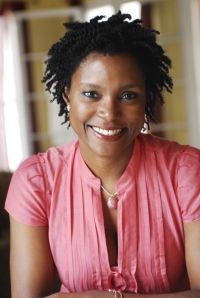Onda de Calor
Humidade e calor não eram nossos convidados
Naquela tarde de Domingo.
Surpresa eles disseram e sorriram.
Balançamos nossas cabeças,
Nenhuma bebida para saciar a sede que eles deixaram,
Nem ventilador para refrescar a sala
Ou as marcas de suor que estampam as camisas de linho e
as saias coral de Primavera.
Nosso Labrador não ignorou nosso infortúnio.
Lambeu nossos dedos enquanto nossas juntas e músculos imploravam
Por glucosamina.
Aos 86, os 96 graus fizeram nosso reumatismo despertar.
As dores da idade que odiamos,
Tivemos que elevar nossos membros letárgicos
E engolir nossas cápsulas e tirar sonecas o dia todo.
Então a Mãe Natureza soprou um beijo
O vento acariciou nossas coxas, nossos rostos
E nos acordou.
Refrescados e recuperados, nos sentimos vivos.
Acariciamos o cachorro, colocamos Ella para tocar
E dançamos a noite toda.
Original “Heatwave” written in English on May 27, 2009, and translated into Portuguese on August 8, 2009: Emme Devonish, Frank Jenkins, and Daniela Von Hanzlik.
